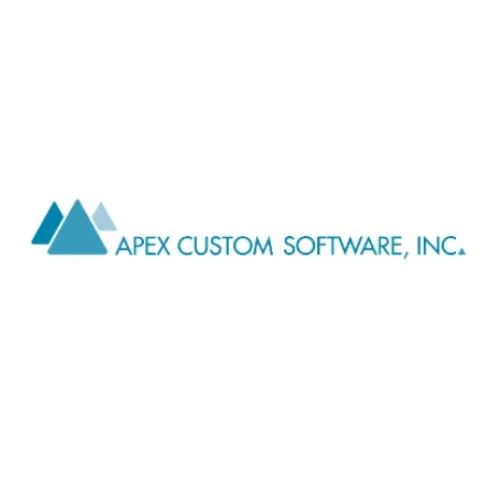Errors in controlled substance records are more than paperwork problems. They carry real risk. For healthcare settings, pharmacies, and clinics, a small slip can lead to audits, legal action, or worse—loss of trust. That’s where automation steps in. But does it truly stop errors? Or just change how they happen?
Let’s take a closer look at what automation actually does, how it works behind the scenes, and why more healthcare providers are making the switch.
The Problem with Manual Logs
Paper logs still show up on clinic shelves. Staff write down doses, disposal notes, and signatures. On the surface, it looks simple. But mistakes are everywhere. One missed digit, one smudged entry, one skipped signature—and the Controlled Substance Log becomes unreliable.
Human error isn’t rare. It’s normal. Busy professionals juggle multiple tasks. Writing accurate logs isn’t always top priority. And even with the best effort, memory fades. Mistakes sneak in. That’s a big risk under DEA rules.
Even digital spreadsheets aren’t much better. They allow back-dating, editing without notice, and zero traceability. Once errors land in the system, they're hard to track. And in audits, there’s no way to prove intent. Just gaps.
What Automation Actually Fixes
Automation isn’t about removing humans. It's about keeping their records honest. An automated system tracks each step: when a drug arrives, when it’s dispensed, who handled it, and where it went.
Each transaction is time-stamped. Entries can’t be altered without creating a digital trail. Systems even track user logins. That alone stops many of the common issues—like staff signing off entries they didn’t witness.
It’s not just about honesty. It’s about memory. Automated systems remember every detail, every time. Staff don’t need to recall if a med was restocked yesterday or two weeks ago. The system knows. That alone stops errors before they begin.
Automated Reconciliation Means Less Risk
Balancing a paper log with actual stock is painful. Staff have to count doses, compare notes, and backtrack through logs when numbers don’t match. It takes time. And it invites mistakes.
Automation skips that drama. Each transaction adjusts the count automatically. If a dose is pulled but not administered, the record reflects that. If waste is logged, the system expects a matching note. Reconciliation becomes a built-in feature, not a separate chore.
Instead of looking for errors after they happen, the system helps stop them from happening at all.
Better Security Without Extra Effort
Manual logs can be forged. Papers can be lost. Signatures can be faked. But an automated system knows who logged in, when, and what they did. It uses passwords, role-based access, and audit trails. That adds layers of security without needing extra staff or procedures.
Some systems even use biometric verification. That means only approved staff can access or update records. No shared passwords. No writing someone else’s initials.
For facilities facing stricter state rules or DEA reviews, automation supports peace of mind. There’s proof of compliance built right into the workflow.
Smart Reports for Easier Audits
Audits shouldn’t be scary. But if reports take days to assemble, something’s wrong. Automated systems generate logs on demand. Date ranges, drug types, staff activity—it's all filterable and downloadable.
Inspectors don’t want to flip through dozens of paper sheets. They want proof. A good system offers it in seconds.
And it's not just for the DEA. Internal audits, pharmacy boards, insurance reviews—everyone benefits from clean data. Facilities using automated systems often report shorter inspections and fewer citations.
One System. Many Benefits.
All of this comes together into a system that improves not just compliance—but workflow. Less paperwork. Fewer manual steps. More trust in the records. And faster access to information when it’s needed most.
Automation doesn't just fix the Controlled Drug Log. It improves how facilities handle meds from start to finish.
It also supports long-term trends in care. Remote audits. Tighter oversight. Real-time pharmacy integration. These shifts aren’t coming—they’re already here. Manual logs don’t keep up. Automated tools do.
So, Can Automation Really Eliminate Controlled Substance Log Errors?
It’s not a silver bullet. But it comes close. Automation removes most of the causes of common mistakes. It offers structure, accountability, and traceability—all built into daily tasks.
It doesn’t make staff perfect. But it makes it much harder to be careless. And easier to catch problems fast.
For facilities looking to protect their licenses, safeguard inventory, and avoid audit issues, automation isn’t a luxury. It’s a tool that works silently in the background—keeping things accurate, current, and safe.
Conclusion: Why Facilities Are Turning to Apex Custom Software
Apex Custom Software delivers more than just automation—it builds confidence into controlled substance management. With its user-friendly platform, every transaction is tracked from acquisition to disposal. The system supports real-time logging, reducing guesswork and human error at each step.
Reconciliation is no longer a manual burden. The software matches records and inventory counts automatically. That means less time spent chasing numbers—and more time on patient care. Custom alerts flag issues early, while robust user permissions protect sensitive data.
Security is built in. From role-based access to digital audit trails, the platform ensures compliance without slowing down workflow. Reports are ready on demand, helping teams prepare for audits with no last-minute stress. DEA reviews become smoother. Inspections take less time.
Apex also supports license management. Renewal reminders go out automatically. Licenses are stored in a central, secure location. Reporting tools give managers a clear view of status, gaps, and timelines—helping maintain readiness without the usual scramble.
All of these features make Apex Custom Software a trusted choice for facilities that need to stay compliant, efficient, and audit-ready. It doesn’t just track data. It transforms it into reliable protection for staff, patients, and the organization itself.


